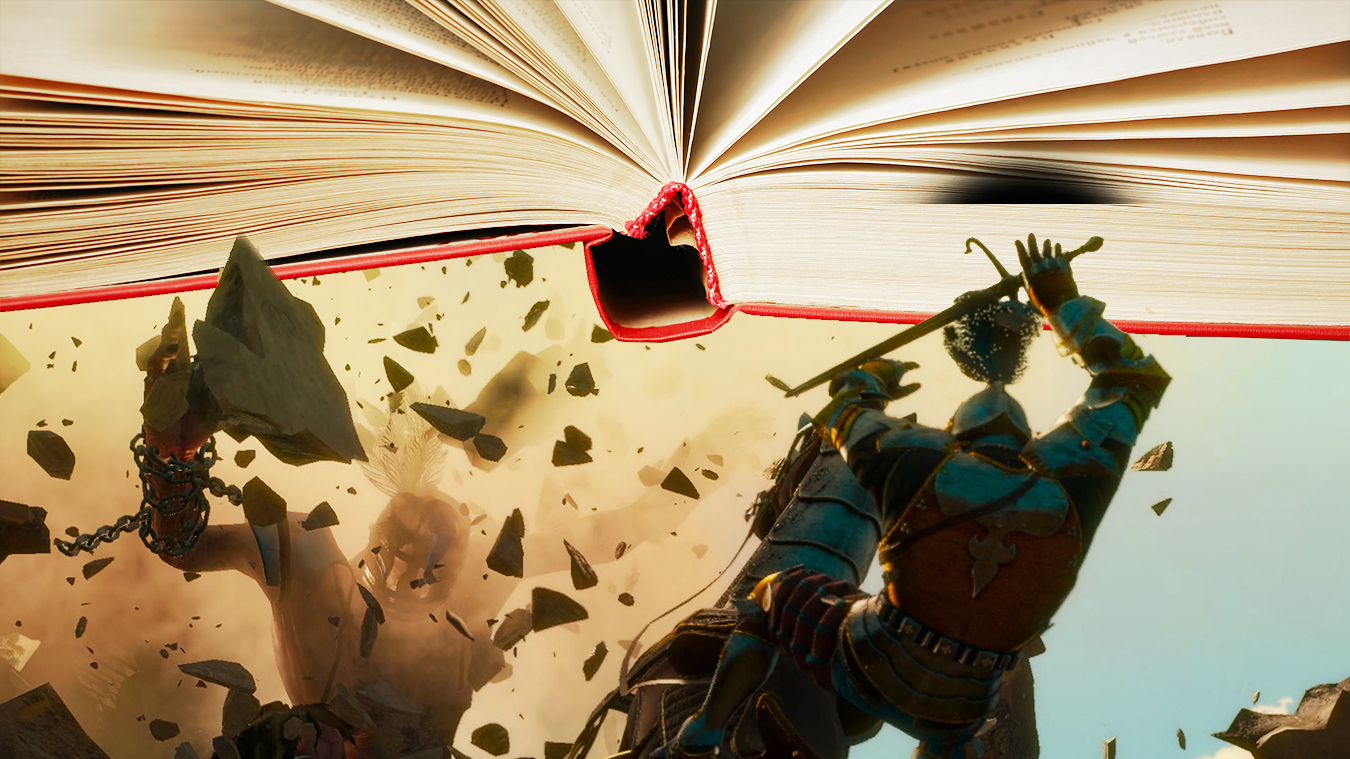
Filmmakers have adapted the novels of Fyodor Dostoevsky over 200 times, but it's no big surprise we've still yet to play Crime And Punishment: A Telltale Adventure. Novels and film go much further back, obviously, and also share more in common with each other than either does with games. Games can be non-linear, branching, uninterested with plot at all or layered with story only after control and progression systems—interactivity makes games so different that basing them on novels might be hinderance more often than not.
But on the flip side, we've been jabbing games for weak characters and storytelling—in a loving way—for a long time. There are obviously cases of brilliant original storytelling in games, as well as some great games that are based on books, like The Witcher, but even so it’s become cliched to point out cliche and pastiche in games. For every Witcher, Kentucky Route Zero, or Planescape: Torment there are 20 convoluted melodramas.
If the games industry drew more inspiration from great novels, would it help? Maybe not—it isn’t as if movies are good just because they often adapt books, and lots of them suck regardless of their source. But for fun we’ve imagined a world where games and books do have a closer relationship—what novels would we want to see adapted and how might they be done? Mostly science fiction novels, it turns out, because that's who we are.
Flip to the next slide for our first imaginary videogame adaptation, and let us know it the comments what books you’d want to play.
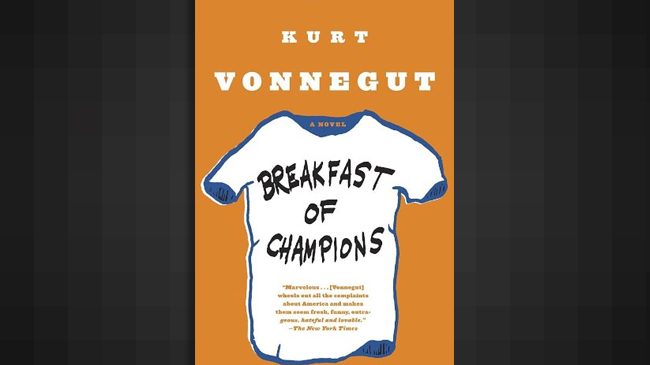
Breakfast of Champions
Author: Kurt Vonnegut | Publication date: 1973
It's hard to do humor in games. I mean, it seems like it should be all but impossible. How do you plan jokes around where a player is looking and make what they're doing fun, without sacrificing the jokes you're trying to tell them? I don't know if there's a more impressively funny game in existence than Jazzpunk, and there haven't been many writers in history funnier than Kurt Vonnegut, so let's just imagine those two things mashed up into one.
To be honest, I don't remember a lot about Breakfast of Champions. I mostly remember the picture of an asshole Kurt Vonnegut drew on one of the pages. It looked something like this: *. But as I recall, Breakfast of Champions plays with ideas of sanity and reality and free will, and frequently interjects meta commentary with Vonnegut writing himself into the book. How perfect is that for a videogame? It can make jokes about you, the player, and how you're playing a game, and when that gets too meta, it can just show you a picture of a butthole or transport you inside one of Kilgore Trout's sci-fi worlds for a while.
Jazzpunk already has the vibe of an especially absurdist Vonnegut novel, and I'm pretty sure developers Necrophone Games could make a game that is simultaneously nonsense and insightful about how messed up the world is—without being too depressing about the whole thing.
—Wes Fenlon
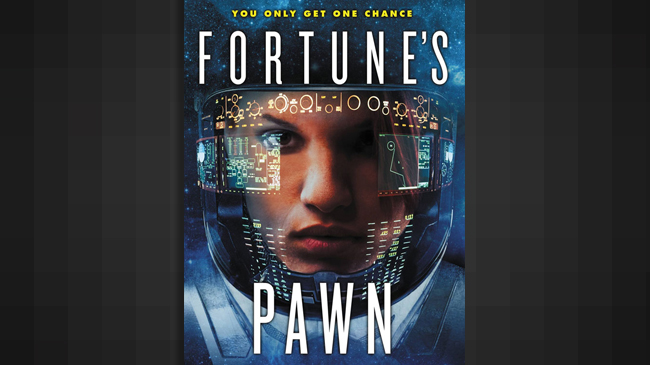
The Paradox Trilogy
Author: Rachel Bach | Publication date: 2013, 2014
I feel slightly dumb (more so than usual) for suggesting another pulp sci-fi page turner when Mass Effect already exists, but bear in mind that 1) Mass Effect is really good, and 2) I can’t think of a way to adapt Clive Barker’s Books of Blood into a successful game. Yet. So my pick is the Paradox Trilogy by Rachel Bach, which comprises Fortune's Pawn, Honor's Knight, and Heaven's Queen. The star throughout is Deviana Morris, a cynical space mercenary who loves her suit of custom power armour far more than any of the men who, invariably, fall for her. The arc of the books takes in an intergalactic cover-up involving various alien menaces, entire planets being destroyed, and a virus that might extinguish all life in the universe. A fair amount for Devi to deal with then, so no wonder she’s pissed off pretty much throughout.
In terms of how the game would work, I’d actually like it set before the events of the books, with Devi making her way through the stars, taking contracts, hopping from ship to ship, fending off pirates and ETs at ever step. The idea she’d be building her reputation, with the ultimate goal being to join the Devastators, which is the king’s own regiment of elite ass-kickers. Of course along the way she’d uncover some kind of bigger threat which she’d need to handle, grumpily, whilst breaking as many hearts as possible. The way I could see this being not just a knock-off Mass Effect would be to double down on Devi’s personality, in the same way as The Witcher is fundamentally driven by Geralt’s personality. C’mon, a lady Witcher in space... Tell me you’re not into it. —Tim Clark
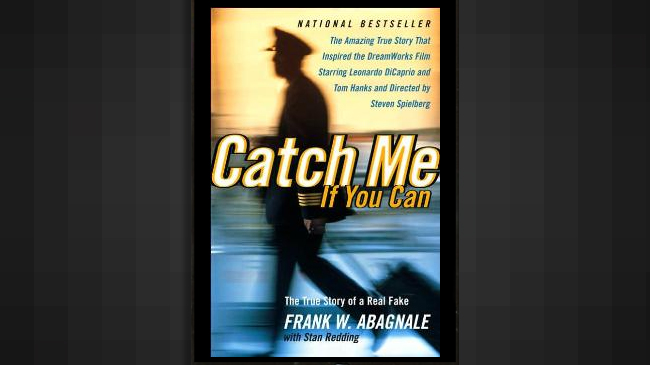
Catch Me If You Can
Author: Frank Abagnale | Publication date: 1980
There are two things I’d like to note about Abagnale’s co-written book detailing his career as a con-man and master forger. First, Steven Spielberg's movie adaptation, while good, somehow failed to include the most daring and crazy cons Abagnale pulled (or at least claims he pulled). Second, the book is one of the most smugly self-congratulatory works of non-fiction I’ve ever read. It’s borderline infuriating how impressed Abagnale is with himself. Granted, he was a hell of a con-artist, and I’m impressed myself, but sheez, have a shred of humility. It’s still well-worth reading: if you can tolerate Tom Hanks’ godawful accent in the film, you can probably tolerate Abagnale’s obnoxious writing.
I don’t know if a direct adaptation into a game would work, but I’d love there to be a game, maybe an open-world RPG, about being a con artist. Some games have charisma options that allow you to deceive or manipulate others, but I’d like a game that consisted of nothing but that. Sort of like Hitman or Dishonored, but instead of guns and assassinations, you infiltrate a location using wits and lies and bilk your targets out of first hundreds, then thousands, then maybe millions of dollars. I think it’d be a tough system to build and would need more than just a selection of dialogue options and a charm meter to be satisfying, but working your way up from a cheesy street-level con-artist and into a world-class one would be amazing.
—Chris Livingston
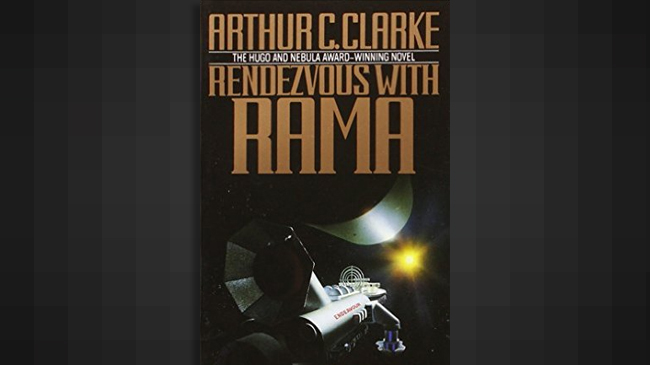
Rendezvous with Rama
Author: Arthur C. Clarke | Publication date: 1973
Putting aside the stuff about Earth and Mars wives and orbital orgies, Rendezvous with Rama depicts a human expedition into an alien spacecraft that is quietly bulleting through the solar system. There are lots of dormant or derelict spaceships in games—usually overrun by slobbering aliens—but this ship is calmer and stranger. It’s a giant cylinder that houses a complete ecosystem, it’s coming to life rather than falling apart, and there are no shiny, arachnids that scurry around in vents. The aliens, as far as anyone can tell, are either dead or hiding. The goal is to decipher the ship’s purpose while keeping out of the way of the automated machines now activating inside it—I picture a mix of action and puzzles, with lots of logging details and mucking with alien tech to see what it does. Clarke’s characters are fine but weren’t the star of Rama—the ship was—so their personalities could be nudged around to add a bit more personal drama. There definitely needs to be a bigger part for the intelligent apes on the crew.
Rama actually has been adapted a couple times, most recently as a 1996 Sierra game which slathers the wonder and mystery and danger with cheesy exposition, like a theme park ride with 3D glasses and moving seats. Clarke’s inventions are worth more than that—Rama’s enormous staircases, linear suns, tubular clouds, cylindrical sea, and city-sized machines could be awesome to explore in a modern game.
—Tyler Wilde
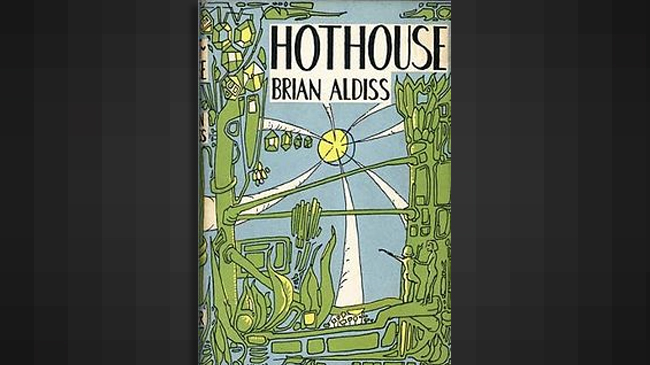
Hothouse
Author: Brian Aldiss | Publication date: 1962
In Hothouse, one side of the Earth is exposed permanently to an oversized sun, creating an orgy of growth for plants and insects, and a pretty crappy situation for humans. The result is a world of immensely oversized trees as well as, worryingly, gargantuan insects and wildlife. Humankind is tribal and insignificant, because the world is too large to be commandeered. While Aldiss’ brilliant narrative might not adapt seamlessly to game form, the various settings would. Imagine maneuvering through a game world via the branches of a continent-spanning banyan tree, and finding refuge from dragon-sized wasps inside the folds of a leaf? Aldiss’ fiction is rich with outlandish phenomena and creatures, and yet they all feel within the realm of possibility. If Hothouse doesn’t get a game adaptation, then I guess I’d settle for Honey I Shrunk The Kids instead.
—Shaun Prescott
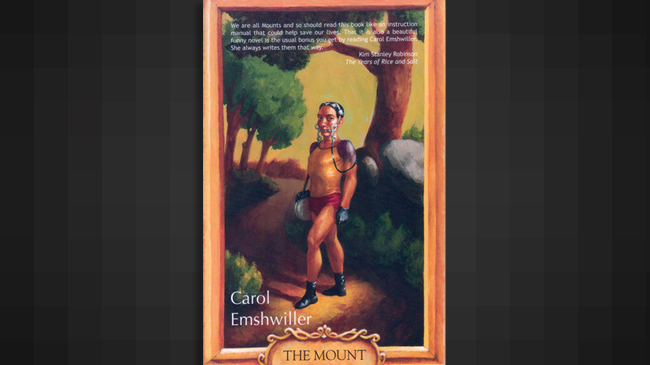
The Mount
Author: Carol Emshwiller | Publication date: 2002
For centuries, humans have been horses. Weak-legged but strong-handed aliens ride and race us, pat us kindly, appreciate our muscles and manes, and breed us to be strong or stout or fast. The Mount is an unsettling novel that would lend itself to developers keen on the weird, incredible, and disturbing—Zeno Clash creator ACE Team comes to mind. I can’t imagine any game following its narrative precisely, but starting as a racing mount, racing other humans, and then adventuring into the human rebellion could be presented with quiet strangeness. I imagine longer scenes of running in first person with an alien voice in my ear broken up by vignettes that explore the protagonist's split desires and allegiances.
The world of The Mount doesn’t make much sense—no time is spent trying to offer an explanation as to how these weak aliens conquered Earth and tamed humanity—which lends it well to videogames. What’s important isn’t pages of logs explaining the backstory, but how humans and their alien masters think and relate to each other and freedom, which could be expressed in all kinds of interactive scenarios and decisions.
—Tyler Wilde
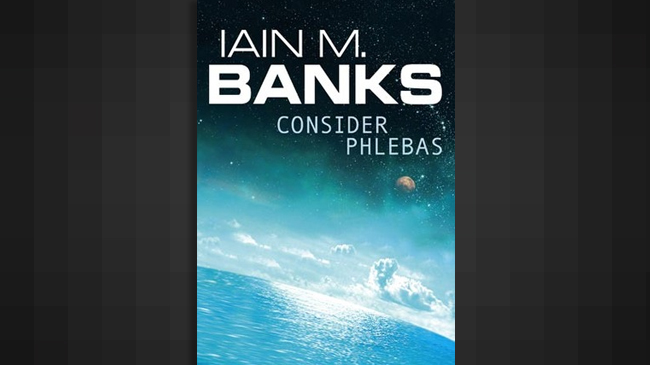
Consider Phlebas
Author: Iain M Banks | Publication date: 1987
Technology is finally getting to the point where we can make great sci-fi games, but the ones we get are still in love with ideas that were out of date 50 years ago in the wider sci-fi world. Spaceships are a bit like the US navy. The more advanced a robot is, the closer it looks to human. The galaxy is run by a bureaucratic space-council, or maybe a space-emperor, and your career choices are scientist, colonist, or marine.
Iain M Banks kicked new life into space opera, and his approach would do wonders for videogames too. His spaceships carry populations of 250 million or more, and are so big you can live a rich and fulfilling life without ever leaving one. They have stupid punning names, which they chose themselves because they’re sentient, smarter than you, and don’t give a rat’s arse. Advanced robots here are floating boxes, because who needs limbs when you control actuator fields? They’re smarter than you, too.
The most advanced society in Banks’ universe isn’t the usual bunch of finger-wagging holier-than-thous but the Culture: a people entirely devoted to high-tech hedonism, swapping planet and gender on a whim. Supporting their lifestyle is the ethically dodgy but deeply cool Special Circumstances division, quietly toppling empires to protect and propagate the Culture’s own brand of AI-enabled super-democracy. They are sexy secret agents with talking guns and knife-missiles for friends, and it is here, I think, that the potential for a great sci-fi RPG truly comes in.
—Tony Ellis

Moby Dick
Author: Herman Melville | Publication date: 1851
To parallel Moby Dick, a game adaptation would have to be 10 percent narrative, and 90 percent obtuse whale anatomy and plodding ocean philosophy, which perfectly complements the pacing of a 4X strategy game. I imagine a hexagonal board, not too far removed from something like Civ V, but instead of just controlling the Pequod, players take turns building up their own whaling company, including shoreline operations and a fleet of ships for every need: scouts, transport ships, assault vessels, and the like.
Your head of operations resides in the biggest ship in your unit, and the only one capable of taking on Moby Dick, an elusive AI unit that slowly progresses from defensive to offensive over the course of the game. One of the victory conditions—”Madness”—is capturing the whale, but it’ll take a significant amount of resources and time to prepare your vessel and crew. At the helm is your captain, who will largely define your play style. Each carries an overriding philosophy that pushes in a certain direction. One might be excellent at trading, another at research and development, and another—Ahab, likely—is skilled in whaling. Whenever you build something or advance in a tech tree, their portrait pops up in the corner and the Sean Bean of the Week quotes a line from the book in a gravely, consequential voice.
On researching The Tail, “Thou shalt see my back parts, my tail, he seems to say, but my face shall not be seen. But I cannot completely make out his back parts; and hint what he will about his face, I say again he has no face.” It may not make sense out of context, but damn, it feels true.
Tech trees branch off into trade operations, ship technology, and study of the animals themselves, which lead to advances in culture and more specific uses of their parts—more uses means more flexibility in the market. If candles aren’t selling then slow down production and put some sought after sperm mollifiers out there (if you’ve unlocked them). It’s a complex, deep (ocean joke!), contemplative spin on the 4X genre where the true catch isn’t the monstrous whales, but the monsters we become and blame them for. Also the graphics are good.
—James Davenport
The collective PC Gamer editorial team worked together to write this article. PC Gamer is the global authority on PC games—starting in 1993 with the magazine, and then in 2010 with this website you're currently reading. We have writers across the US, UK and Australia, who you can read about here.


